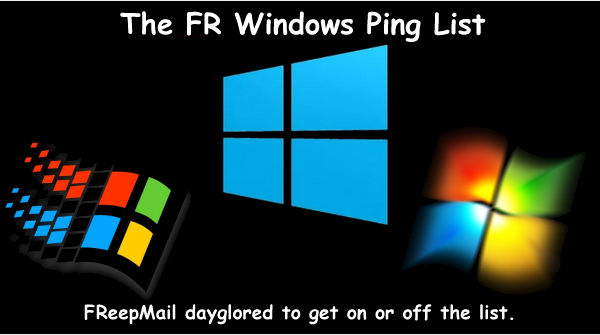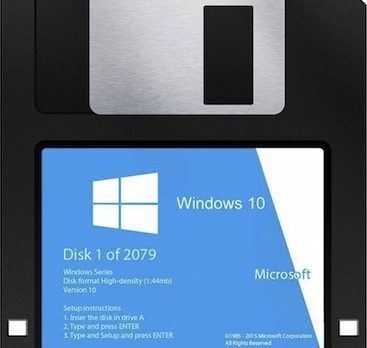 |  |
|---|
 |  |
|---|
Win7 on this rig.
Bought used ~8 yr. ago, loaded with same.
I just upgraded Win7 to 10. I’ll probably upgrade to 11 right before 12 comes out but only under protest.
i think it also suffered from the fact that it needed powerful computers to even run it at first- i think they have fixed that though?
I’ve been using Win11 since it was released. It really is just Win10 with a fresh coat of paint. I can’t imagine why any enterprise would jump to upgrade.
somewhat misleading.
MS is doing a rolling roll-out of the free W11 upgrade. It’s not supposed to be complete until mid-2022 so the numbers will be down.
I have W-11 and so far, no complaints. Not sure why I needed a hardware upgrade.
Seems like it’s giving a look and feel of a smartphone.
Right-click context menu is different - yet, if you select more options the traditional context menu is displayed. It seems to be that way for most functions to include the start page contents.
Now I have to figure out if I want to move stuff from my W-10 box to my Win-11 box.
Running 11 on an older HP Elitebook. Works just fine.
Microsoft stock is up 60% in the last 12 months:
Too early to claim success when only 1/5 of 1% of PC users have the OS.
Bought a new PC in Oct. that had Win10. Took about 20 hours over three days to get set up. No instructions, owners manual, etc.
After set up, the damn screen would just go black with no warning (happened 3 times). About 10 seconds later, a msg would appear telling me not to turn off the ‘puter, because they were updating with some Win 11 features!
More FUD from the anti-MS folks.
Wanna know why XP is still around? Because the kernel is so full of holes that old software, esp. in manufacturing, has not or will not be rewritten to the higher security standards in modern operating systems.
In my security practice, I’ve seen XP machines running backend healthcare processes that would make most thoughtful people fear for the safety of their personal information. An Internet-connected XP machine, even fully patched WITH antivirus, can be compromised in less than 2 minutes. Let that sink in for those of you still clinging to XP with your cold, dead hands.

Windows 10, Office 365 and Edge work together to provide a superior way to work. If you don’t do anything of substance with your computer I guess Windows 7 is ok.
The Win10 spyware was so popular because MS gave free consumer upgrades from 7. 10 would run (not particularly well) on old, slow computers.
For most folks, going to a suported Win11 is going to mean buying new hardware as well as buying a new OS licesnse. Win11 will get adoped at the consumer level as folks upgrade hardware - which will be delayed, as a lot of new hardware was sold on the front end of covid and is only a couple of years old at this point.
As for corporate - most will probably hold back until most of the installed base has been refreshed to Win11 capable machines. No one is going to be eager to support multiple operating systems when they don't have to (although a combination of WFH and BYOD has made that to some extent, necessary already).
(Typed on a Win7 machine.)
Wrong comparison. They need to compare thus with the Windows 8 upgrade. If MS announced that the free Windows 11 upgrade would end in 2 months them there would be an exponential increase in adoptions.
I'm surprised at the low Win-11 acceptance rate. I'm sure that will number will be changing drastically in the very near future.
I was a mid level IT engineer for a ~5,000 seat enterprise in my final job before retiring. Windoze shop of course. I participated in many mass systems upgrades during my tenure there. They still had NT4 machines when I joined them in 2003.
The takeaway that stuck with me was that mass migrations are easy...if you don't care about your users and their data. We got really good about using automation to remotely flatten boxes and lay a new OS onto them, complete with a host of default applications. What wasn't as consistent was the successful migration of user's data from the Before state to the After state - a real sore point for me personally. Having to face the customer and tell him his stuff is irretrievably gone sucks!
I sat through many heated discussions where management found themselves mediating arguments between the super-nerds who were fashioning the automation tools that made mass migrations possible and the street-level techs like me who had to deal with the fallout of users losing valuable data. The eventual (partial) solution centered around user education, encouraging users to store data on network drives. Network storage got ridiculously cheap and it didn't make sense to be constantly chasing individuals to clean up their personal hard drives.
Why do we put these stories out for every single release of Windows?! It’s asinine. Like MS is somehow failing. People don’t like upgrading OSes. It’s a pain. And frankly not worth the effort. But when people get new computers they will get the new OS. Anybody that thinks any version of Windows is “dead” is stupid. We wrote these same idiotic articles for XP. Now the articles worship it as the holy land.
XP was the last product MS created that sold itself. Everything else they’ve had to resort to strong-arm tactics to get any market penetration.
In the meantime they’ve spent ten fortunes trying to get a toehold in the handheld digital devices market with nothing to show for it.
They still dominate the desktop market but that market segment has been in steady decline since 2012.
I’m gonna continue to use Windows 7.
I question why any sane business would use windoze at all.
I am not an Enterprise customer — I have already put Win 11 on two laptops in a clean installation. I like it. And one HP laptop is connecting much better/wirelessly/as fast as by Ethernet cable due to Win-11 installing the latest driver, that HP kept saying while in Win-10, that I did not need.
fwiw ...this is an Intel chip for wireless